My wife is recovering from a nasty eye infection, one where I’ve lost count of the visits we’ve made to the doctor and the pharmacy. She’s taking prescription eye drops and a strong antibiotic, and covers her eyes with hot compresses instead of her usual contact lenses. We’re hoping today’s appointment is the end of this ordeal. Odds are however, all of our scurrying around won’t be necessary in a year or two. Instead, my wife will simply seek relief from a digital prescription.
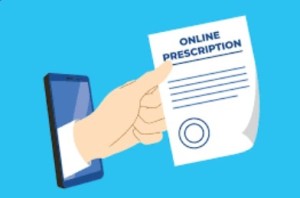 You knew it was coming. The FDA approved the first smartphone app designed to address a diagnosed medical condition, and it’ll be ready for download in just a few months. Rejoyn (don’t ask me where they come up with these names) is a digital prescription designed to combat depression. The patient’s six weeks of self-administered tapping and typing trains their brain back to a healthier state. Or at least, that’s what’s supposed to happen.
You knew it was coming. The FDA approved the first smartphone app designed to address a diagnosed medical condition, and it’ll be ready for download in just a few months. Rejoyn (don’t ask me where they come up with these names) is a digital prescription designed to combat depression. The patient’s six weeks of self-administered tapping and typing trains their brain back to a healthier state. Or at least, that’s what’s supposed to happen.
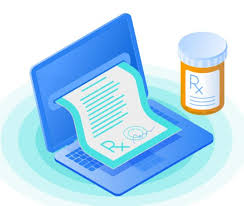 My first thought here was, an app used to address a diagnosed medical condition sounds kind of silly, like playing Tetris or something. But then I realized a prescription of Rejoyn would be one less dose of drugs. Pills removed from the equation is a good thing. But then I read how the results of a Rejoyn beta group were no more successful than those of a group prescribed a sham app. Finally, Rejoyn only works in conjunction with a regimen of traditional medication.
My first thought here was, an app used to address a diagnosed medical condition sounds kind of silly, like playing Tetris or something. But then I realized a prescription of Rejoyn would be one less dose of drugs. Pills removed from the equation is a good thing. But then I read how the results of a Rejoyn beta group were no more successful than those of a group prescribed a sham app. Finally, Rejoyn only works in conjunction with a regimen of traditional medication.
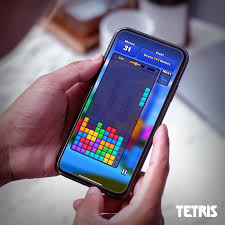 You can see why I’m struggling with the concept. I mean, you still have to take the meds you were already taking and there’s no guarantee the app will improve your condition. So why invest the time and money in your phone? According to an authority from the Division of Digital Psychiatry (which couldn’t have existed even ten years ago), “If the benefits are minimal but the risks are [also] minimal, perhaps there’s no harm in trying it.” Does that strike you as a glowing endorsement of the technology?
You can see why I’m struggling with the concept. I mean, you still have to take the meds you were already taking and there’s no guarantee the app will improve your condition. So why invest the time and money in your phone? According to an authority from the Division of Digital Psychiatry (which couldn’t have existed even ten years ago), “If the benefits are minimal but the risks are [also] minimal, perhaps there’s no harm in trying it.” Does that strike you as a glowing endorsement of the technology?
Rejoyn is the beginning of a wholly different approach to healing. One of these days you’ll find yourself at the pharmacy looking to fill a prescription, and instead of a receiving a bottle of pills you’ll hand over your phone for a download. Then you’ll go home to your couch and – doctor’s orders – spend more time on your phone than you already were. Oh, the irony. Experts say spending too much time on your phone causes depression. Now, the cure for that depression will be to spend more time on your phone.
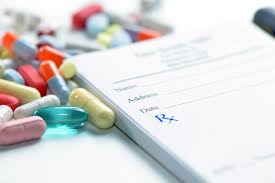 A digital prescription gives a whole new meaning to “overdose”. What happens if you indulge in twelve weeks of screen time instead of six? What if you get so addicted to your electronic cure you can’t pull your eyes and fingers away from the screen? Will the app timeout after so many uses, forcing you to plead with the pharmacy to “renew your subscription”?
A digital prescription gives a whole new meaning to “overdose”. What happens if you indulge in twelve weeks of screen time instead of six? What if you get so addicted to your electronic cure you can’t pull your eyes and fingers away from the screen? Will the app timeout after so many uses, forcing you to plead with the pharmacy to “renew your subscription”?
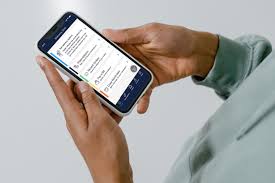
Then there are the side effects. Headaches, loss of sleep, loss of appetite; maybe the same ones you’d experience if you took a pill instead. Maybe the same ones you experience from any use of your phone. And what about your email, social media, and games. Will they be neglected because of all the time you spend on Rejoyn?
Electronic medication is a novel concept, I admit. It’s like having an IV drip of something that makes you feel great, only it’s “wireless” and you don’t need the nurse to give you a dose. You have a little doctor right there in the palm of your hand. But is that little doctor really going to make you feel better?
 There is one indisputable positive to a digital prescription. If you fill your meds at a grocery store pharmacy you’re going to save money. After all, those fifteen minutes while you wait for the pills to be bottled are spent wandering up and down the food aisles. A digital prescription can be downloaded instantly. Now you’ll no longer buy the impromptu groceries you never needed in the first place.
There is one indisputable positive to a digital prescription. If you fill your meds at a grocery store pharmacy you’re going to save money. After all, those fifteen minutes while you wait for the pills to be bottled are spent wandering up and down the food aisles. A digital prescription can be downloaded instantly. Now you’ll no longer buy the impromptu groceries you never needed in the first place.
Some content sourced from the CNN Health article, “FDA clears first digital treatment for depression…”
